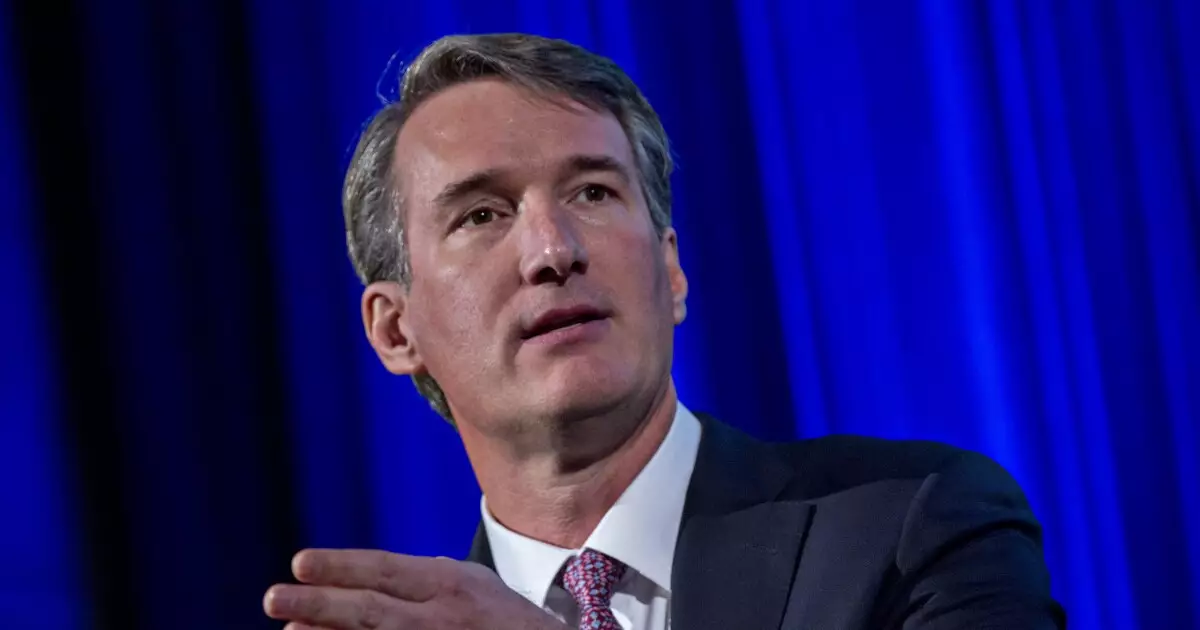In an era marked by fluctuating economic landscapes, many states in the U.S. have found themselves grappling with budget surpluses. Virginia is no exception, and its lawmakers are currently navigating the complex waters of budgetary reform and tax policy. While this year’s surplus has stirred discussions around tax rebates — a move seen in various states eager to reward taxpayers — the dynamics between Virginia’s Republican governor and its Democrat-controlled General Assembly highlight the intricacies of fiscal governance.
Governor Glenn Youngkin has proposed significant adjustments to the state’s tax framework, suggesting a billion-dollar tax rebate. This initiative aims to distribute funds back to the taxpayers, reflecting a broader trend of returning surplus funds to constituents. The proposal includes a one-time rebate of $200 for individuals and $400 for couples, alongside plans to increase the standard state income tax deduction. However, whether these agreements translate into concrete financial relief remains uncertain as the legislative process unfolds.
Virginia’s political climate is anything but straightforward, characterized by recent tensions between Youngkin and the Democrat-dominated General Assembly. Despite the governor’s overtures for collaboration, the Democratic lawmakers have their own vision for the state’s financial future. This clash is not merely a budgetary disagreement; it signifies deeper ideological divides regarding tax policy and fiscal responsibility in the Commonwealth.
The struggle is not unprecedented. Youngkin has faced obstacles before, notably when his plans for a new sports arena in Alexandria were derailed by legislative opposition. This history underscores the challenges of governance in a divided political landscape and raises questions about how effectively Virginia can navigate its fiscal challenges while ensuring the interests of its citizens are prioritized.
Proposals for tax rebates, although politically appealing, often receive criticism from fiscal policy experts who urge caution. The possibility of implementing rebates linked to adjustments in the personal property tax on vehicles could shift the focus away from sustainable financial management and long-term planning. The current vehicle tax rate stands at 4.15% annually, a significant revenue stream for local and state governments. Hence, while the immediate concern is about delivering financial relief to constituents, the implications for Virginia’s fiscal health must be diligently weighed.
Senate Minority Leader Ryan McDougle articulated the sentiments of many lawmakers, emphasizing the need to ensure that taxpayers see some return on the state’s surplus. The challenge lies in balancing immediate financial relief with prudent fiscal management — a cornerstone of long-term economic health. The proposed measures, while beneficial in providing quick monetary returns, may create challenges for future budget allocations.
Interestingly, amidst the ongoing legislative debates, Virginia’s fiscal credibility has received a reaffirmation from Fitch Ratings, which recently assigned a AAA rating to the state’s general obligation bonds. This rating underscores the commonwealth’s solid economic foundation, marked by effective fiscal management and a robust revenue-generating capacity. Virginia’s commitment to building its reserve fund further demonstrates a strategy that might be more aligned with sustainable long-term growth than short-term tax rebates.
Nonetheless, the dichotomy between the proposed tax rebates and financial stability cannot be ignored. The ongoing discussions within the General Assembly and the governor’s office will ultimately shape Virginia’s fiscal landscape for years to come. The question remains: will quick fixes, such as tax rebates, serve as a catalyst for sustainable growth, or will they detract from essential investments needed for the economic development of the state?
As Virginia’s legislature continues its deliberations on the budget and tax policy, the importance of decisive and collaborative governance becomes increasingly evident. The tug-of-war between favorable tax policies and visionary fiscal strategies reflects a broader national dialogue on how states can best manage surplus funds. The outcome of these negotiations will not only impact the immediate financial relief provided to Virginia’s residents but will also set a precedent for how future fiscal challenges are addressed in a politically fragmented environment. Ultimately, finding common ground in fiscal governance is crucial, not only for the wellbeing of Virginians but also for the integrity of the state’s economic trajectory.

